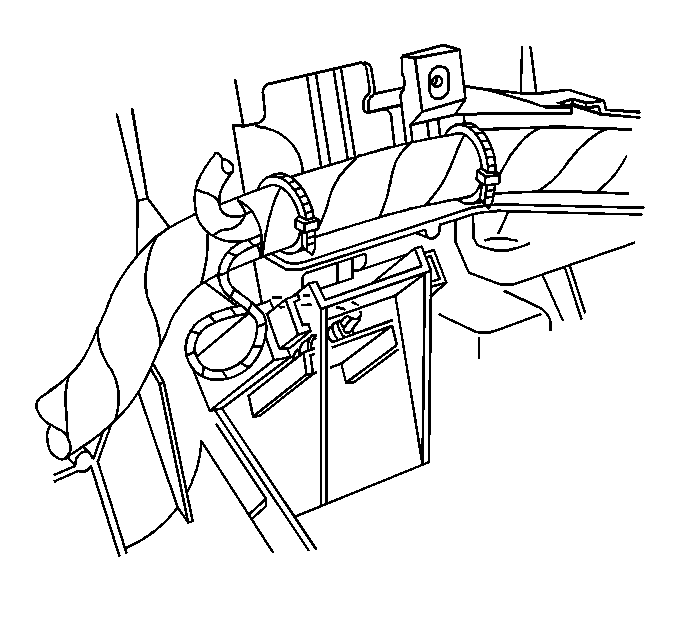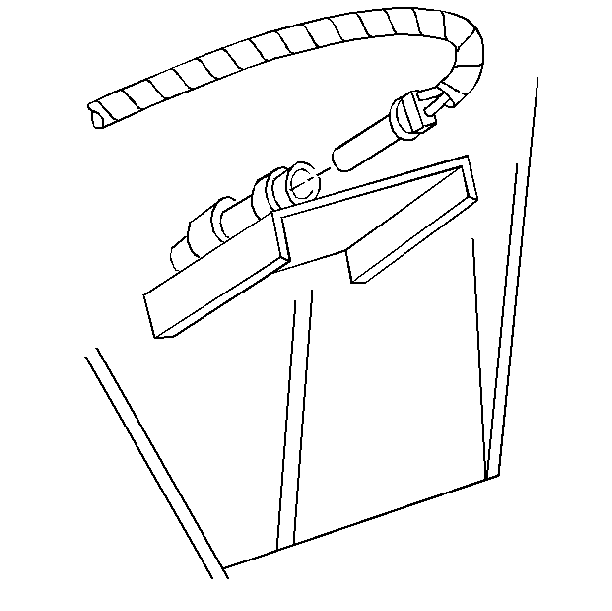Removal Procedure
Caution: Unless directed otherwise, the ignition and start switch must be in the OFF or LOCK position, and all electrical loads must be OFF before servicing
any electrical component. Disconnect the negative battery cable to prevent an electrical spark should a tool or equipment come in contact with an exposed electrical terminal. Failure to follow these precautions may result in personal injury and/or damage to
the vehicle or its components.
- Disconnect the battery negative cable.

- Remove the ash tray.
- Remove the knee bolster. Refer to
Knee Bolster Replacement
in Instrument Panel and Console.
- Remove the screws that retain the ash tray housing to the instrument
panel.

- Slide the ash tray housing
forward.
- Perform the following steps in order to remove the bulb from the
ash tray housing:
| 6.1. | Squeeze the metal tangs on the bulb shield. |
| 6.2. | Lift the bulb from the socket. |
Installation Procedure

- Install the bulb to the
ash tray housing.
| • | Insert the bulb into the socket. |
| • | Squeeze the tangs on the bulb shield and push the bulb shield
into the housing. |

- Slide the ash tray housing
back into the instrument panel.
Notice: Use the correct fastener in the correct location. Replacement fasteners
must be the correct part number for that application. Fasteners requiring
replacement or fasteners requiring the use of thread locking compound or sealant
are identified in the service procedure. Do not use paints, lubricants, or
corrosion inhibitors on fasteners or fastener joint surfaces unless specified.
These coatings affect fastener torque and joint clamping force and may damage
the fastener. Use the correct tightening sequence and specifications when
installing fasteners in order to avoid damage to parts and systems.
- Install the screws
that retain the ash tray housing to the instrument panel.
Tighten
Tighten the screws to 1.9 N·m (17 lb in).
- Install the knee bolster. Refer to
Knee Bolster Replacement
in Instrument Panel and Console.
- Install the ash tray.
- Connect the battery negative cable.




